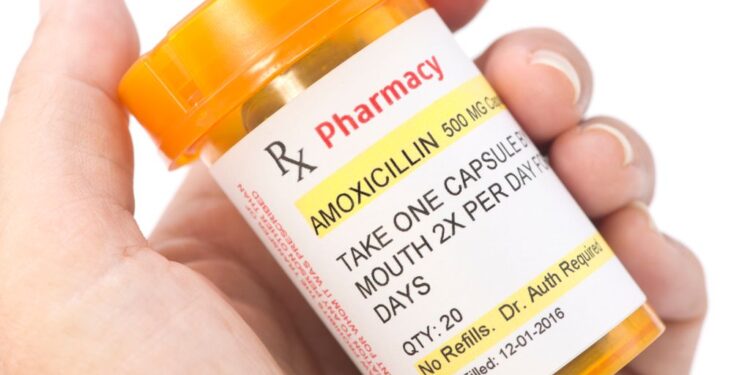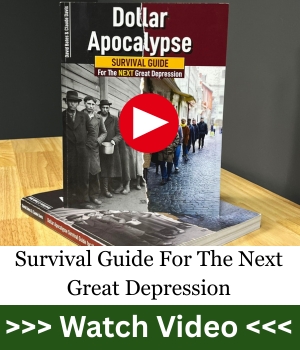Amoxicillin is one of the most commonly stockpiled antibiotics among preppers. It’s affordable, widely available, and effective against many bacterial infections. But one question comes up again and again: does it really expire? And if so, what happens when it does? Read this simple Amoxicillin antibiotic expiration guide and you will quickly learn the truth.
What Is Amoxicillin?
Amoxicillin is a broad-spectrum antibiotic in the penicillin family. It’s used to treat respiratory infections, ear infections, skin infections, urinary tract infections, and more. It comes in capsules, tablets, and a liquid suspension form. Overall, it is one of the most common antibiotics we have access to and a great addition to any survival stockpile.
What Does the Expiration Date Mean?
The expiration date is the last day the manufacturer guarantees full potency and safety. That doesn’t necessarily mean the drug becomes dangerous after that date. But it might not work as well. For antibiotics like amoxicillin, that matters a lot. If the drug is too weak, it may not kill the bacteria effectively, which can lead to treatment failure and even antibiotic resistance.
Read more on expiration date here: What Really Happens When You Take Antibiotics After Their Expiration Date
Shelf Life of Amoxicillin
Amoxicillin is normally sold in liquid and solid forms. They have different shelf expiration dates.
Capsules and Tablets
- Typically have a shelf life of 2 to 3 years from the manufacturing date.
- If stored properly (cool, dry, dark conditions), tablets and capsules can remain effective for up to a year past their expiration date.
- Studies under controlled conditions have shown some batches lasting even longer – up to 23 months past the labeled date.
Liquid Suspension
- Once mixed with water, the liquid version of amoxicillin is only good for 7 to 14 days.
- It must be refrigerated and should be discarded after two weeks, even if there’s some left.
- Expired liquid amoxicillin can grow bacteria or mold and should never be used.
What Happens If You Take Expired Amoxicillin?
In most cases, expired solid forms of amoxicillin simply lose potency. They’re not toxic. But that reduced strength can mean the drug doesn’t fully eliminate the infection. That’s especially risky in a survival situation where medical help might not be available.
Related: The Only 4 Antibiotics People Stockpile
With liquid amoxicillin, expiration is more serious. Once mixed with water, the risk of microbial contamination increases over time, and it should never be taken past 14 days.
How to Store Amoxicillin for Maximum Shelf Life
- Keep tablets and capsules in their original packaging, away from heat, moisture, and light.
- Store in a cool, dry location—not the bathroom or near a kitchen stove.
- Do not open capsules or crush tablets until ready to use.
- For liquid forms, keep refrigerated and tightly sealed.
Can Expired Amoxicillin Still Be Useful?
The U.S. military’s Shelf Life Extension Program (SLEP) has found that many medications, including amoxicillin, retain effectiveness well past their expiration dates under ideal storage conditions. However, this doesn’t mean preppers should rely on expired drugs without caution. In a crisis, slightly expired tablets might be worth using, but always weigh the risks carefully.
Tips for Preppers
- Rotate your antibiotic stock every 1–2 years.
- Label all supplies with purchase and expiration dates.
- Keep a small stock of unexpired antibiotics for critical use.
- Know the signs of treatment failure and when it’s time to seek professional help.
Safe Disposal of Expired Amoxicillin
Never flush antibiotics down the toilet. If a drug take-back program isn’t available in your area, mix expired pills with something undesirable (like coffee grounds or cat litter), seal in a bag, and dispose of it in the trash. This prevents misuse and protects the environment.
Amoxicillin Antibiotic Expiration – Final Thoughts
Amoxicillin can be a powerful tool in a prepper’s medical kit, but like any medicine, it has limits. Understanding how expiration works, how to store it, and when to rotate your stock is key to making the most of your supplies without putting yourself or your family at risk. A little planning now could save a lot of trouble when it matters most.
You May Also Like:
Best Prepper Books – 9 Books To Survive ANY Crisis!
10 Medical Supplies You Need to Have in Your House! (Video)






















What if you are allergic to penicillin.
In some cases, you can die from penicillin. But there are other things that you can take if you have a problem.
Just remember that you must stay clean and heathy while you are trying to survive. Just one cut or even a scratch can bring you down to deaths door.
stay sharp
red ant
How do you get these antibiotics. I have started slowly stock piling many crucial things (food, fire supplies, medical supplies, etc.). Antibiotics seem impossible to stockpile yet are always listed as a necessity.
Unlike food or fire starters, you can’t just pick up a few bottles of amoxicillin at the store. But there are legal and responsible ways to build a supply.
One increasingly popular option is to look into telehealth services that offer preparedness-focused prescriptions. Some providers (like Jase Medical or similar services) will work with you to prescribe a kit of commonly used antibiotics after a short consultation. These are designed specifically for emergency use and come with instructions on when and how to take them.
Another path some folks take is ordering fish or pet antibiotics, which are often the same as human-grade versions. That said, it’s crucial to understand the dosage, purity, and expiration risks before going that route, so it’s not for everyone and not without controversy.
Finally, it’s a smart idea to build a relationship with your doctor. Explain your preparedness mindset and see if they’re open to prescribing a small supply for emergency scenarios, especially if you’re traveling or living remotely.
Antibiotics are definitely harder to get than bandages or beans, but they’re worth the effort to research and prepare for safely. Keep at it, you’re on the right track.
You can go to a store that sells fish supplies and purchase antibiotics for yourself. I believe it is called Fish-Flox, made by the same company and just as good.
where do you get your information? I’ve read that the pills can be good for up to 10 years.
Your observation about amoxicillin’s potential longevity is valid. While manufacturers typically set expiration dates for amoxicillin tablets and capsules at 2 to 3 years from the date of manufacture , studies have shown that many medications, including amoxicillin, can retain significant potency well beyond these dates.
For instance, the U.S. Department of Defense’s Shelf Life Extension Program (SLEP) found that numerous drugs remained effective years past their labeled expiration dates. Specifically, amoxicillin demonstrated an average extended shelf life of approximately 23 months beyond its expiration date under controlled storage conditions .
However, it’s essential to note that while some medications may maintain potency beyond their expiration dates, the safety and efficacy of using expired antibiotics like amoxicillin aren’t guaranteed. Degraded antibiotics can lead to suboptimal treatment outcomes and contribute to antibiotic resistance. Therefore, it’s advisable to consult a healthcare professional before using any expired medication.